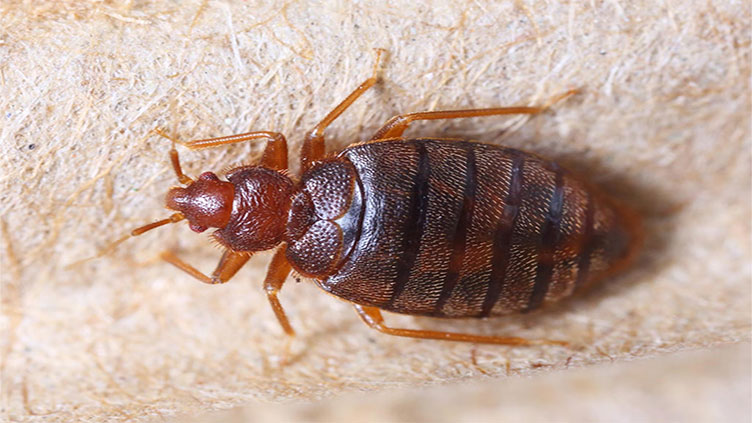Bedbugs: hotels turn to tech as outbreaks rise

Technology
There is growing public concern about the insects
(Web Desk) – There is growing public concern about the insects, with hotels, transport companies and local governments all facing enquiries about the issue.
And firms are turning to tech - both old and new - to catch outbreaks early, which is vital to stopping the spread.
“A fortnight ago we had a detection of a bedbug and it's frightening," says Max Malka, owner of the Montlhery Paris Sud Hotel, 15km south of Paris.
You don't know if bugs are moving between rooms, he said, and you risk being sued if a guest is bitten badly.
His is one of many firms seeking solutions amid a rise in reported outbreaks in France and the UK.
Pest control company Rentokil said it saw a 65% jump in cases of bedbugs in the UK in the second quarter of 2023, compared with a year earlier.
And Luton Council issued guidance to local residents this week on how to handle an outbreak, after dealing with an "alarming number" of calls about bedbugs.
Mr Malka points out that hotels in Paris can expect to get a case once a year. Guests bring them as they travel, usually in the summer season.
In the end, he paid a pest control firm €1,500 (£1,300) to eradicate the bugs before they spread.
This was after he invested in a new kind of monitoring technology developed by a UK start-up called Spotta. It enabled him to detect his case of bedbugs early.
He is so proud of his system that he has stickers in his hotel telling customers it is in place for their reassurance.
Spotta's boss Robert Fryers says it's vital to catch an outbreak before it spreads, "because you can go from two bedbugs to thousands in the space of months."
An adult female can lay around 400 eggs in her short lifespan - a matter of months, depending on the temperature. The eggs take about two weeks to incubate.
Mr Malka's Spotta device is a small plastic box that contains a pheromone chemical designed to attract bedbugs. In hotels, the devices sit between mattresses and bedframes.
If a bug crawls inside, a small camera takes a picture and sends it over the internet to a central database.
A combination of artificial intelligence software and the human eye confirms whether a bedbug has indeed been caught. If so, a mobile phone alert warning is sent to relevant managers.
"It's a bit like a Covid test for bedbugs," says Mr Fryers.
Once a bug has been detected, chemical pesticide or heat treatment pest control measures can be taken, before the problem has spread. Hopefully this means few customers will see the bugs, or share their experience on social media.
The company that pioneered this early-detection approach is Finland's Valpas, founded in 2013. It has signed deals with many luxury hotels across Europe.
It has designed a digitally-connected bug trap that is integrated into the custom legs it makes for beds. It has raised more than $2m (£1.6m) in venture capital funding.
Bugs crawling up the bed to bite humans are caught in a cavity and the traps then send a signal over the internet to alert hotel owners.
Like Spotta, Valpas has had to overcome the stigma around the idea of a hotel needing to have "pest control" in the first place - it's not the first thing you put on adverts.


